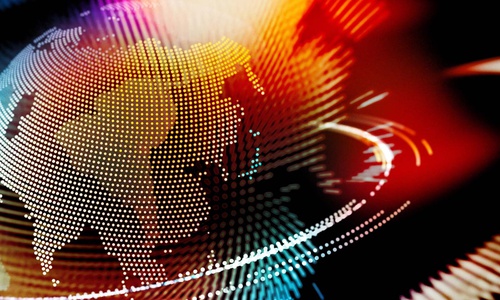

Globalization to Regionalization - The world after the coronavirus pandemic is likely to be a very different place
April 18, 2020, 4:20 p.m.The global political-economic system will be replaced by the coronovirus epidemic just like everyone else.
In the past of an era, the disintegration of empires and dynasties caused by such large natural disasters included; These present-day disasters are certainly intended to produce comparable results. It may be some time before the effects of covid-19 are mitigated, but it is not too early to begin mapping the sequence after the epidemic.
Not necessarily, coronovirus may be the sole cause of the advancing global changes. The preexisting fault lines will be further enhanced and the already trending powerful trends.
But if we now see developments happening around the world, we can expect, among other things, the rapid retreat of globalization, including the rapid emergence of semi-autonomous regional blocks. The second is focused on Europe, says China and its customers, and the third is about to connect North and South America. The World Health Organization — which will be atrophy or perish, for example, continental entities that span continents.
Inside this broad canvas, many other results can be expected. Governments that fight this virus effectively can enjoy fluctuations in public support;
Those who do poorly will lose support and may be thrown out. China's communist leadership, for example,
In Wuhan has come due to criticism of ordinary citizens over their failure to act fast and then attempting a coverup of their malfeasance; More than one lakh people in Japan asked Prime Minister Shinzo to resign on Twitter, and the main reason for this was his failure to tackle the virus. Iran's clerical regime may face a popular backlash to conceal the extent of the outbreak and then respond in a hateful manner. Ultimately, every government will be judged on its performance in fighting coronovirus.
Global capitalization division
It is believed that the most effective outcome of the covid-19 epidemic will be the suppression of centrifugal forces within global capitalism. Of course, the distortion process has been going on for some time, as has the Donald Trump's rejection of the Trans-Pacific Partnership trade pact and the rejection of the trade war against both his allies; Brexit is another expression of this trend. This process will accelerate the Covid-19 epidemic, encouraging businesses in the USA and Europe to move their important supply lines away from Asia and toward local suppliers.
For its part, China is likely to reduce its dependence on the US market and put greater emphasis on its customers in Africa and South, Central and Southeast Asia. Beijing's Belt and Road Initiative is China's primary vehicle for expansion of trade and investment in these areas, which is now experiencing a recession as a result of the epidemic, but there is no doubt that China is once in operation of its factories Then will add anew. As part of this effort, China is seeking greater use of the yuan in trade and development agreements, progressively outstripping the dollar and the euro.
Europe is already facing Trump's hostility to NATO, and is therefore bound to feel even more isolated, drawing away from the United States because of punitive tariffs on European goods. Not only this, after President Trump imposed a ban on people from European countries for 30 days in the US, he can say that if the current crisis escalates, European leaders will be able to increase their distance from Washington and both economic and political matters Is likely to achieve greater autonomy.
Given all these current conditions, we can expect a more fragmented world, in which the three major blocks or trading zones will operate more or less according to their own rules and employ the same currency - dollars in the Western Hemisphere, Euro in Europe and Africa, Yuan in Asia. Capital and goods will be able to move in these areas relatively easily, but if you talk outside these areas, outside of them, it can prove increasingly difficult. International rules and legislation, such as those overseen by the World Trade Organization, will be left to the regional governance structure, each of which will be shaped by major powers.
As this process of partition moves forward, and if no country is automatically deployed within a given block then in that situation those countries will be forced to combine with one or the other.
Japan and Australia, now jointly allied with the United States, but highly dependent on trade with China, would be forced to choose between the United States or China under this circumstance. Russia would have to reform itself and join Europe or become a satellite of China, trading yuan and consumer goods for its oil and weapons. And Saudi Arabia, long to behold the West for markets and protection, can be increasingly drawn towards Asia as a guarantee of the West after both have disappeared.
These are some of the changes we can expect globally after the covid-19 epidemic. But there is no doubt that, there can be no other result. Yes, but one thing is certainly clear that the world after this epidemic is not the same as before.
Got another minute? Check out:


COVID-19 & Data-enabled healthcare initiatives

COVID-19 and digitalisation: 4 areas of tech set to boom post-pandemic

What COVID-19 Means for Ecommerce Startups

COVID-19 and the Future of Globalization

5 Ways Blockchain Tech Can Help Us During This Pandemic

Business Implications of Covid-19.

Businesses to survive the Covid-19 crisis

How will blockchain technology help to reduce the damage due to COVID-19.

Is COVID-19 be the best time of startup. Is it really?
